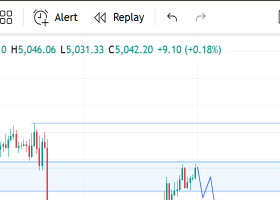
17th Geneva Report urges central banks to hike rates as asset bubble concerns increase
Central banks that maintain ultrasoft policy threaten to boost asset bubbles and make it harder to respond to the next financial crisis, the 17th Geneva Report has cautioned.
The research, commissioned by the International Centre for Monetary and Banking Studies and the Centre for Economic Policy Research, has called on governments to use fiscal policy and supply-side reforms to inspire investment and increase long-term interest rates.
Сentral banks currently struggle to hike borrowing costs from the historical troughs that have dominated the post-crisis era with the U.S. Federal Reserve reluctant to tighten now due to a weakening global economy.
The four authors of the report, who include Charles Bean, former deputy governor at the Bank of England, consider that today's environment of low rates will be maintained for some time yet.
"That places added value on the adoption of longer-term fiscal and structural policies that encourage investment," they said.
The Geneva report challenges the hypothesis of Lawrence Summers, a U.S. academic, that the world has got stuck in "secular stagnation", which claims that countries are in a trap of a long-term cycle of permanently low rates and low growth.
There are good demographic reasons to believe long-term interest rates will rise eventually, the paper said. As the baby boomers continue to retire and spend their pensions, the global supply of savings will dwindle, making banks pay more for deposits.
The authors also believe this process may take a long time and caution that a prolonged period of ultra-low rates could still be damaging for the global economy.
Asset bubbles are a real threat low borrowing costs can produce. Investors rush towards riskier
products in search of yields. Although regulators have put substantial faith
in so-called macroprudential tools, such as restrictions on how much mortgage debt homebuyers can borrow, the report says these means have not been properly tested.
"Prudential policies may be able to mitigate these risks, but we
should be wary of expecting too much from relatively untested and
potentially controversial policies," it said.
Crisis times
The
authors also note that low interest rates may make it hard for regulators to respond to an economic crisis. With rates hovering near zero, monetary
policymakers would be forced to rely on unusual policies, such as
asset-purchase programs known as quantitative easing, but these means appear to be progressively less
effective, the report says.
Firing up QE to include assets other than government debt could make the public finances vulnerable to sovereign losses and create distributional issues over which economy sectors are favored.
“Monetary policy is less well suited to the task of keeping aggregate demand in line with potential in an environment where long-term real interest rates hover near zero,” the report concludes.
The report thus urges governments to help central bankers abandon historically low interest rates more quickly by creating preconditions for investment through other policy levers, such as public spending and structural reforms.
"...heightened uncertainty and the weak recovery after the crisis have discouraged capital formation," the authors write adding that "there is also scope for investment and innovation-friendly policies to hasten a resurgence in the propensity to invest."


